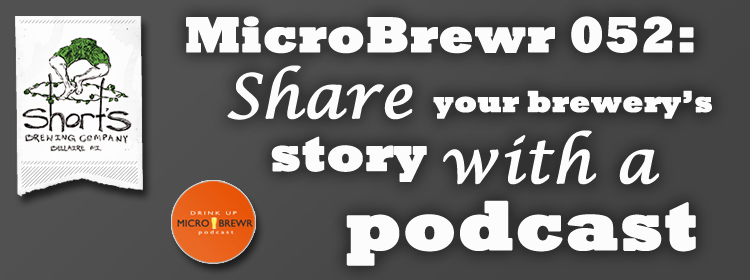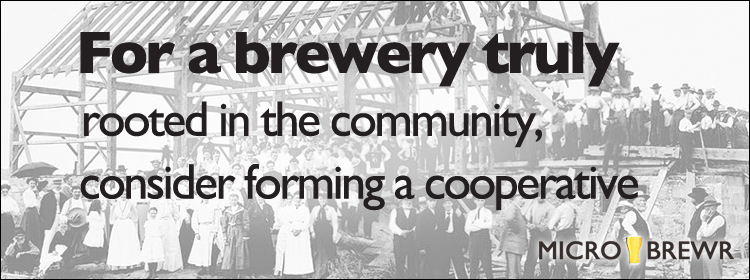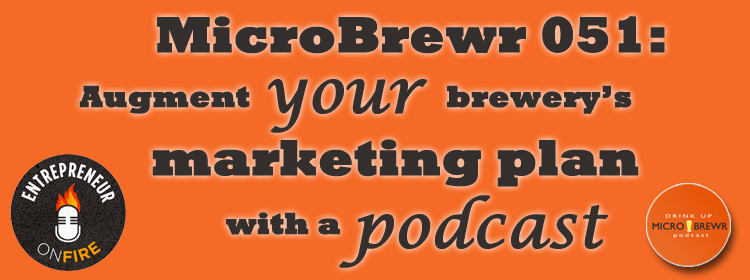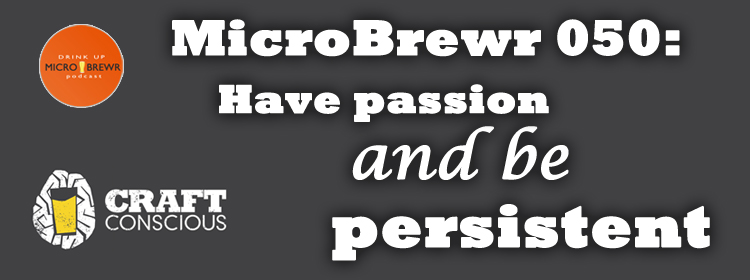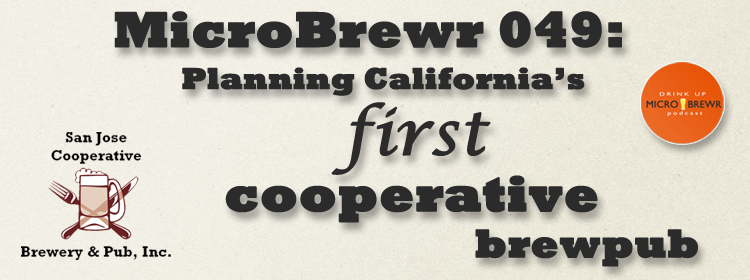The cooperative business model is gaining popularity. Even many craft breweries are forming as co-ops. If you’re thinking of starting a brewpub, the cooperative business model might be the way to go.
The Sustainable Economies Law Center (SELC) is the authority on co-ops. MicroBrewr Podcast recently spoke with SELC as part of a series about breweries as co-ops. Here, Sara Stephens, staff attorney at SELC and the Law Office of Sara Stephens, expands on how the cooperative business model can be applied to breweries.
Disclaimer: This blog post is made available only to give general information about the law and not to provide specific legal advice. The law is different in every state and subject to change. You should consult an attorney about legal questions pertaining to your situation.
For a brewery truly rooted in the community, consider forming a cooperative
Full disclosure: I am Nathan Pierce’s girlfriend wife. Because of that, I am learning more about craft beer than I ever expected I would. Although I’m not a big beer drinker, I am a big fan of entrepreneurship that helps create a more equitable economy. My job as an attorney at Sustainable Economies Law Center is to help people start cooperative businesses, equitable housing and land stewardship models, and other projects that create more resilient communities.
What impresses me most about craft breweries is how unlike conventional businesses they tend to be (in a good way).
- They give back to their local communities.
- They collaborate and share with each other.
- They innovate and take risks.
- They generally resist selling out to make a bigger profit.
- And they seem like great places to work.
Because of these qualities, I believe the craft beer industry is ripe for the cooperative movement to take hold.
Cooperative basics and benefits
Cooperatives, I believe, are the best type of business to form if you want to be truly rooted in your community. By “cooperative” I mean an entity that is owned not by outside shareholders but by its members—the people who actively help the business to succeed.
Members might be:
- The business’ workers (worker co-op)
- The business’ customers (consumer co-op)
- Producers of the product it sells (producer co-op)
- A combination of those categories
Members of a cooperative jointly own the business, share its profits, and democratically manage its operations. This form of business keeps more wealth in the local community because the members (local workers, customers, and/or producers) are its owners. In the case of a brewery, the members could be the workers in the brewery, the consumers of the brewery’s beer, and/or independent brewers whose beer the co-op sells.
These members also have a say in how the business is run, so they can keep it from exploiting its employees or the local environment. Worker cooperative breweries, in particular, allow the people making the beer to have creative input and ownership in their work. Rather than focusing on maximizing returns to shareholders, a cooperative can truly operate for the benefit of its workers and community.
Listen to podcasts about breweries as co-ops:
MicroBrewr 046: Start your brewery as a worker-owned co-op
MicroBrewr 047: Proof of concept for a brewpub co-op
MicroBrewr 049: Planning California’s first cooperative brewpub
The cooperative model is taking hold
If you’ve been listening to MicroBrewr Podcast (particularly episode 046, episode 047, and episode 049), you’ve heard about these and other benefits of running a brewery as a cooperative. You’ve also heard from a couple of breweries that have chosen the cooperative model.
As it turns out, this trend is really taking hold.
Here’s the list of cooperative breweries Nathan and I have compiled so far. Some have not yet opened, but are well on their way. Below each, I’ve also indicated what type of cooperative it is or intends to be (as far as I could tell). Some of the consumer cooperatives below may actually be hybrids, if the workers are also members and exercise democratic self-governance. If you know of other cooperative breweries, tell us about them in the comments!
- 4th Tap Brewing Co-op (Austin, TX)
- Black Star Co-op Pub and Brewery (Austin, TX)
- Hybrid consumer and worker cooperative. First cooperative brewery in the world. Hear their interview on MicroBrewr Podcast episode 047.
- CO-HOP (Chicago, IL)
- Still in planning. Looks like a producer cooperative and brewery incubator that markets the beer its tenants produce. No posts on their blog or social media in several months; I hope this project is still happening!
- Fair State Brewing Cooperative (Minneapolis, MN)
- Fifth Street Brewpub (Dayton, OH)
- Flying Bike Cooperative Brewery (Seattle, WA)
- Full Barrel Cooperative Brewery & Taproom (Burlington, VT)
- Consumer cooperative, with democratic worker management.
- High Five Co-op Brewery (Grand Rapids, MI)
- Los Alamos Beer Co-op (Los Alamos, NM)
- Miami-Erie Brewing Co-op (Middleton, OH)
- San Jose Co-op Brewpub (San Jose, CA)
- Consumer cooperative. Hear their interview on MicroBrewr Podcast episode 049.
- Together We’re Bitter Cooperative Brewing (Kitchener-Waterloo, Canada)
- Hybrid consumer and worker cooperative.
- Utah Brewers Cooperative—Wasatch and Squatters (Salt Lake City, UT)
- Producer cooperative. Joint marketing of Wasatch Brewery and Squatters Craft Beers.
- Yellow City Co-op Brewpub (Amarillo, TX)
- Consumer cooperative, with democratic worker management.
Key legal issue: choice of business entity
Since I’m a lawyer, I’ll say a little about one of the biggest legal decisions cooperatives need to make: what entity type to choose.
The most important distinction between a cooperative and a conventional business is the set of principles under which it operates. Check out the International Cooperative Alliance’s Cooperative Principles, which most cooperatives strive to follow.
Your state law may or may not contain a “cooperative corporation” business entity type, or something similar. Even if it does, you could still form something else (like an LLC) and may want to for various reasons. Typically, the LLC or cooperative corporation will be the best choice because they limit your personal liability.
Every state is different, but in California, here are some of the pros and cons of incorporating as a cooperative corporation.
Pros of incorporating as a cooperative:
- This entity type legally enshrines cooperative principles into the business, requiring democratic decision-making and member ownership. These principles can be part of an LLC’s Operating Agreement, but there is a risk that members could vote to remove the cooperative provisions.
- The business must incorporate as a cooperative corporation in order to use the word “cooperative” in its business name.
- The business can raise up to $300 from each member without triggering cumbersome securities laws.
- If it meets requirements under Subchapter T of the Internal Revenue Code, the business can avoid the double taxation that conventional C-Corporations face. However, LLCs are not taxed at the entity level at all, so both of these entities receive tax benefits.
- Salaries of owners are not subject to self-employment tax, unlike LLC owner salaries.
Cons of incorporating as a cooperative:
- Even though all of the workers might be owners of the business (i.e. a worker cooperative), the law might consider them “employees,” requiring the business to follow employment laws. In that case, the business would have to pay minimum wage, deduct payroll taxes, purchase workers compensation insurance, etc. even while it’s just getting the business off the ground. In contrast, members who co-own an LLC generally will not be considered employees.
- There are more administrative requirements than an LLC, such as annual meetings, Board of Directors meetings, annual report filing requirements, etc.
Resources to start a brewery cooperative
You should meet with a lawyer to determine the best entity choice for you.
Sustainable Economies Law Center also has a free legal resource library on cooperatives (currently under construction).
And the Democracy at Work Institute has some great legal tools, particularly for worker cooperatives.
If you are in the San Francisco Bay Area, the SELC offers drop-in legal advice three times a month for businesses and organizations trying to improve their communities. Come by for advice about your brewery!
The cooperative movement is growing and I hope you’ll join—either as a cooperative brewery entrepreneur or as a member-owner of a cooperative brewery!
Image showing Barn raising in lansing by Alexander W. Galbraith / Wikimedia Commons / Public Domain was modified from its orignal state.
Join the mail list
Don’t miss other great posts like this one.
Sign up for the email list: Sign me up!

